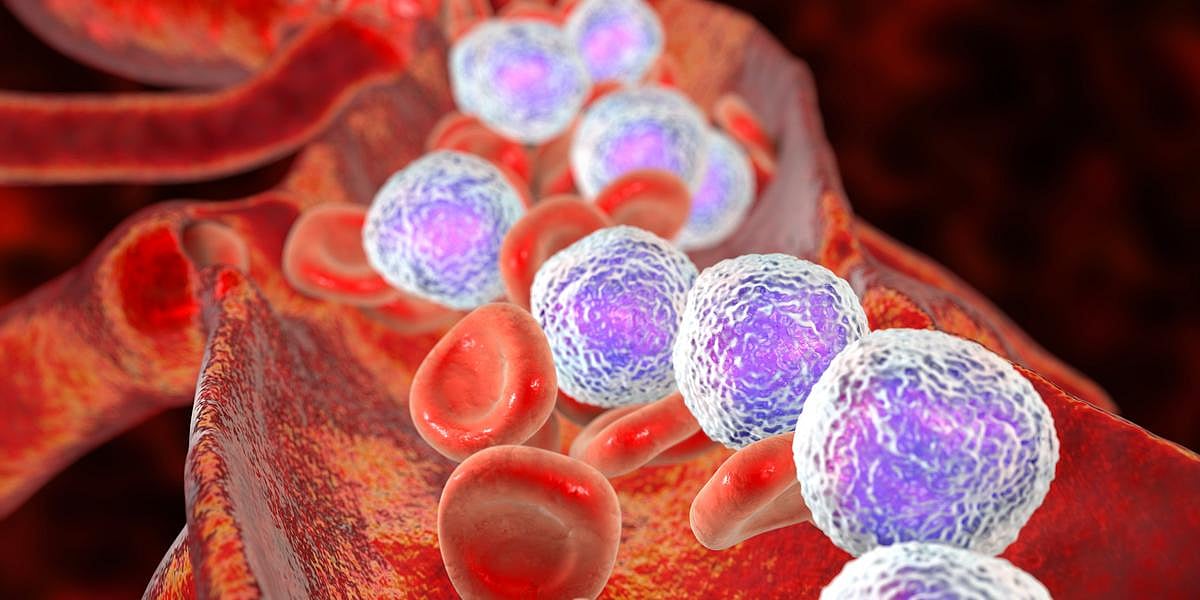Get Healthy!

- Dennis Thompson
- Posted August 5, 2025
New Drug May Fight a Deadly Bone Marrow Disorder
A recently approved leukemia pill also might help some patients diagnosed with a deadly bone marrow disorder, a new pilot study says.
About 3 in 5 patients with myelodysplastic syndrome (MDS) responded to treatment with olutasidenib (Rezlidhia), which the U.S. Food and Drug Administration (FDA) approved in 2022 for patients with acute myeloid leukemia, researchers reported recently in the journal Blood Advances.
What’s more, about two-thirds of patients who previously required regular blood transfusions for the condition no longer needed them, results show.
“We saw really quite remarkable outcomes in a very high-risk MDS population, not only in response rates, but also in blood count improvement, long duration of response and improved overall survival,” lead researcher Dr. Justin Watts, chief of the leukemia section at the University of Miami Sylvester Comprehensive Cancer Center, said in a news release.
The drug targets a faulty gene for isocitrate dehydrogenase-1 (IDH1), a mutant protein that prompts cancer cells to grow and divide.
About 10% of patients with acute myeloid leukemia (AML) have IDH1 mutations, researchers said in background notes.
But those mutations also occur in about 3% to 5% of patients with MDS, leading the research team to suspect that olutasidenib also might be effective at treating that disorder as well.
MDS, also sometimes called pre-leukemia or smoldering leukemia, occurs when blood-forming cells in bone marrow become abnormal, according to the American Cancer Society.
This results in marrow not being able to make enough healthy new blood cells, resulting in anemia, infections, and abnormal bleeding or bruising, the ACS says.
MDS often progresses to AML, so researchers decided to test olutasidenib’s effectiveness in 22 patients with the marrow disorder who had IDH1 mutations. All the patients had medium- to very high-risk disease, with 86% at high or very high risk.
About 59% of the patients responded to olutasidenib, which was administered either alone or with standard chemotherapy for MDS, researchers said.
In addition, 62% of people dependent on red blood cell transfusions and 67% of people dependent on platelet transfusions no longer needed them while taking olutasidenib, results show.
Median overall survival rate was more than 27 months among the entire group of patients, who were an average age of 74, researchers said. (Median means half lived longer, half for a shorter time.)
Median survival was more than 16 months among people with treatment-resistant MDS.
Researchers said these are strong outcomes, given that previous studies found a survival rate of less than six months for treatment-resistant MDS patients.
The results also jibe with those from studies testing another IDH1 inhibitor called ivosidenib, researchers noted.
“Both are exceptional drugs,” said Watts.
The results of this study already have led to changes in treatment standards, researchers said. Olutasidenib is now recommended in the National Comprehensive Cancer Center Network Guidelines for patients with IDH1-mutant MDS.
Researchers now are looking at which AML and MDS patients might respond to olutasidenib long-term.
“We’re trying to get a more precise signature of who these patients are. How can we tell which patients are going to do well with this therapy and have longer-term remissions?” Watts said. “That’s the next paper.”
More information
The American Cancer Society has more on myelodysplastic syndrome.
SOURCES: University of Miami, news release, July 28, 2025; Blood Advances, July 18, 2025
